Lonely is not Being Alone. It's the Feeling that no one Cares.
Sometimes we all need to be reminded of how our little part in helping a world in need can change our thinking.
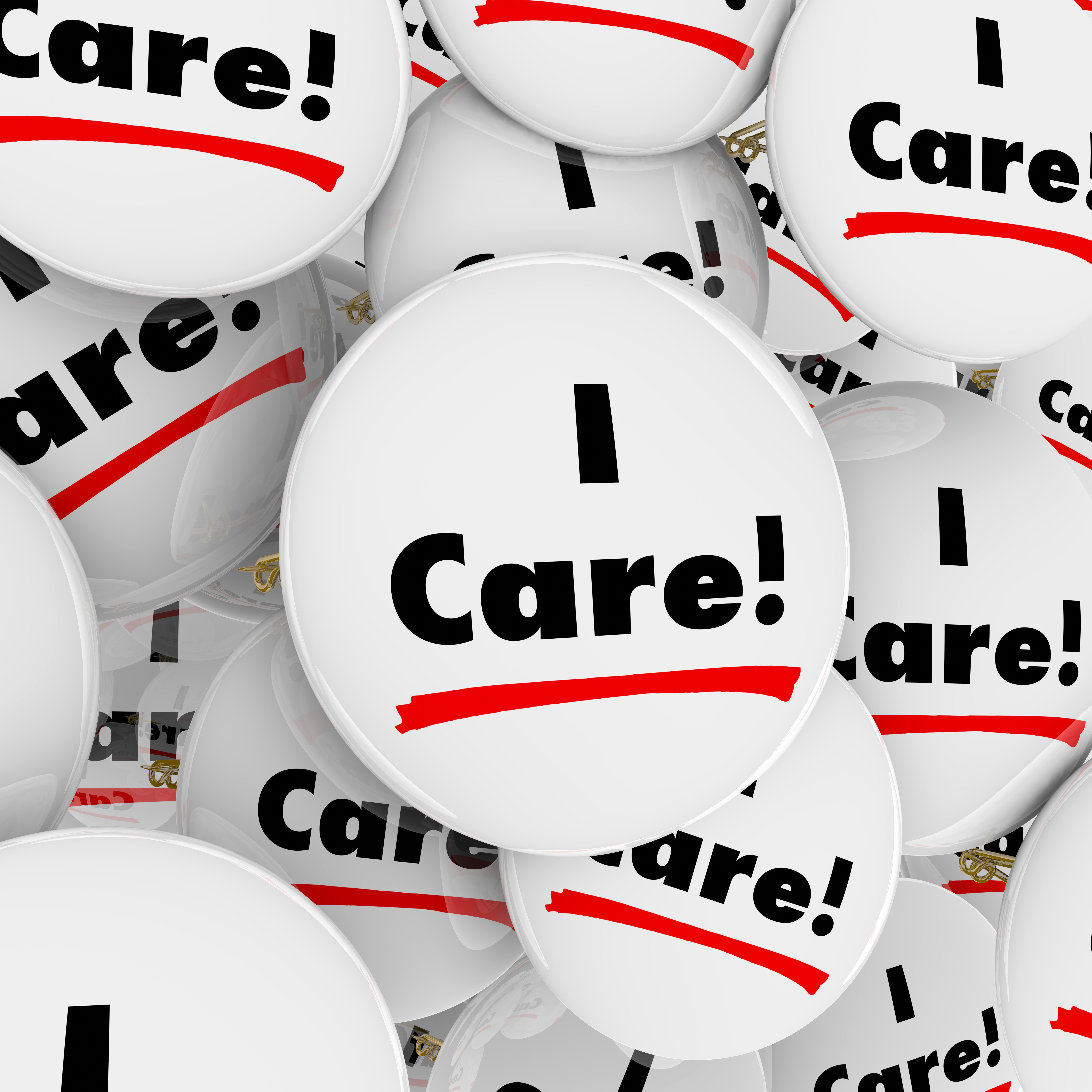
Sometimes we all need to be reminded of how our little part in helping a world in need can change our thinking.
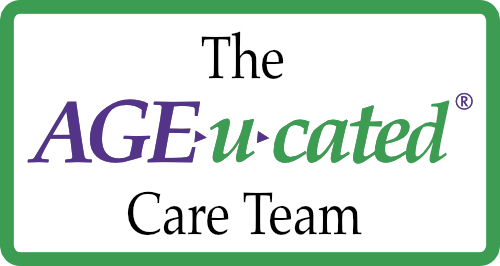
Matt Reiners is the Co-Founder and Vice President of Eversound, a hearing solution company dedicated to improving the quality of life for elders. Recently, he had a conversation with our own Laura Ellen Christian about the future of training and education for the senior living industry.
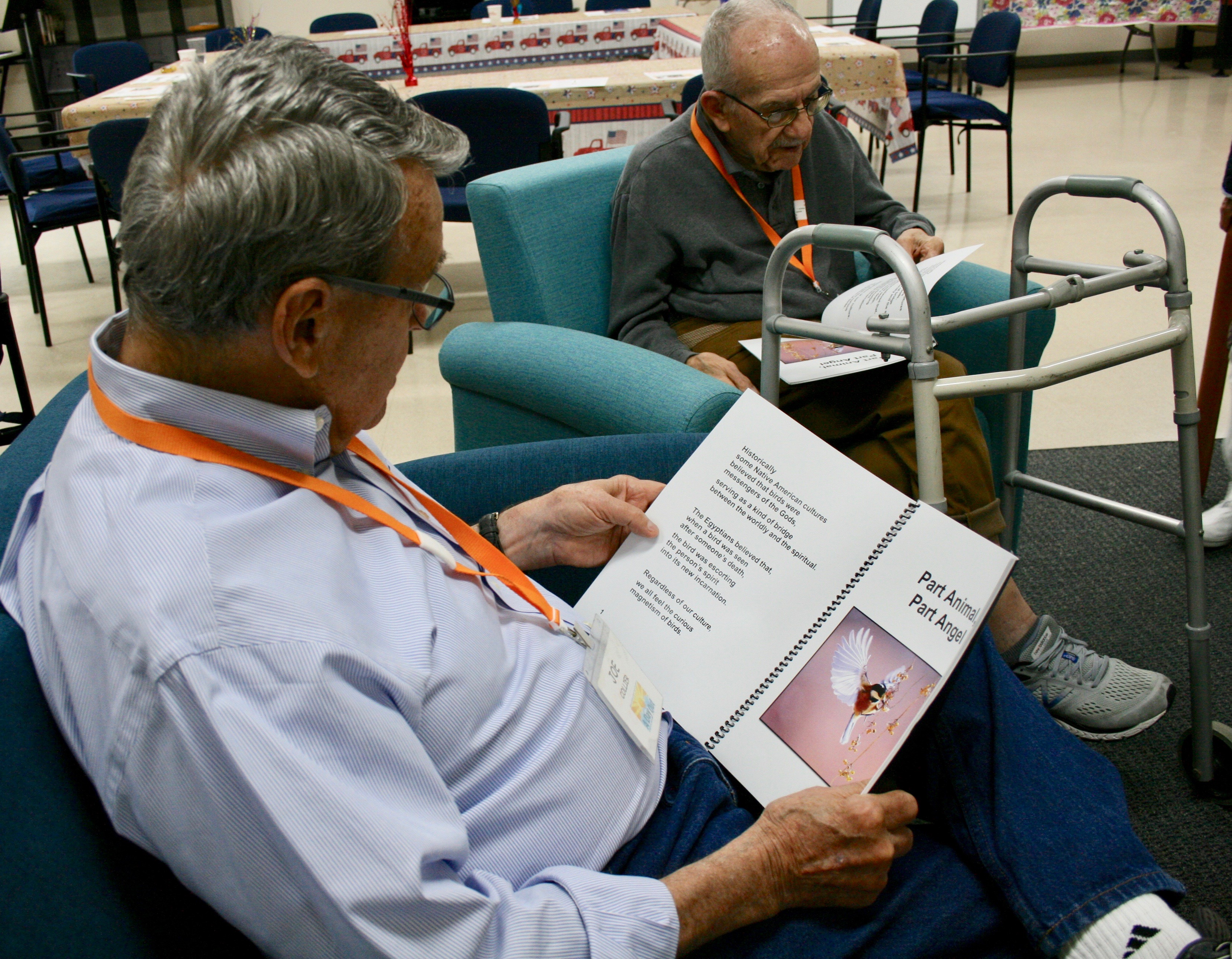
In the world of options for quality life engagement programming, seeking activities that decrease staff direction serves many purposes:

That latest research from AARP and the National Alliance for Caregiving is alarming. The US had 43.5 million unpaid caregivers in 2015. By 2020, that number soared to 53 million. Nearly one in five or 19% provide unpaid care to an adult with health or functional needs.
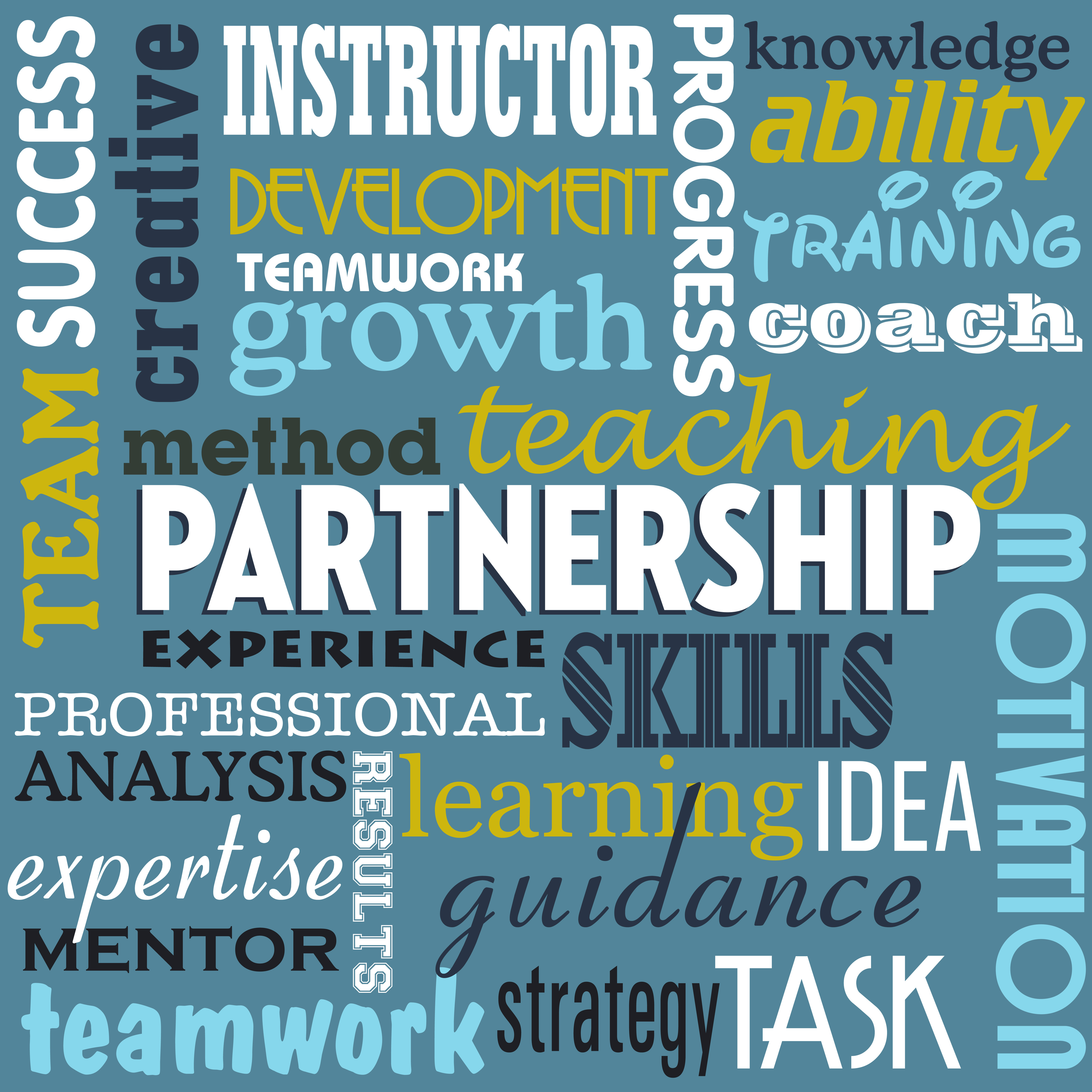
In my last blog post, I shared a recent poll we had conducted that asked what type of training is most effective for aging service providers. Experiential training was the clear leader, followed by peer-to-peer mentoring. Online learning came in last. We need to change our thinking about online learning!
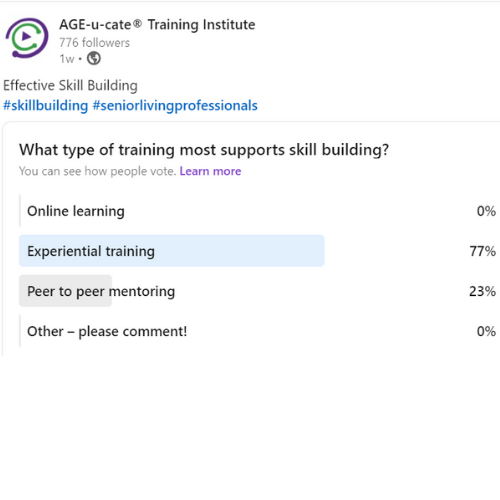
The team here at AGE-u-cate recently ran a poll on this very question. Of the following options, including online learning, experiential training, peer-to-peer mentoring, and "other". The clear winner was experiential training, coming in at 77%, followed by peer-to-peer mentoring at 23%.
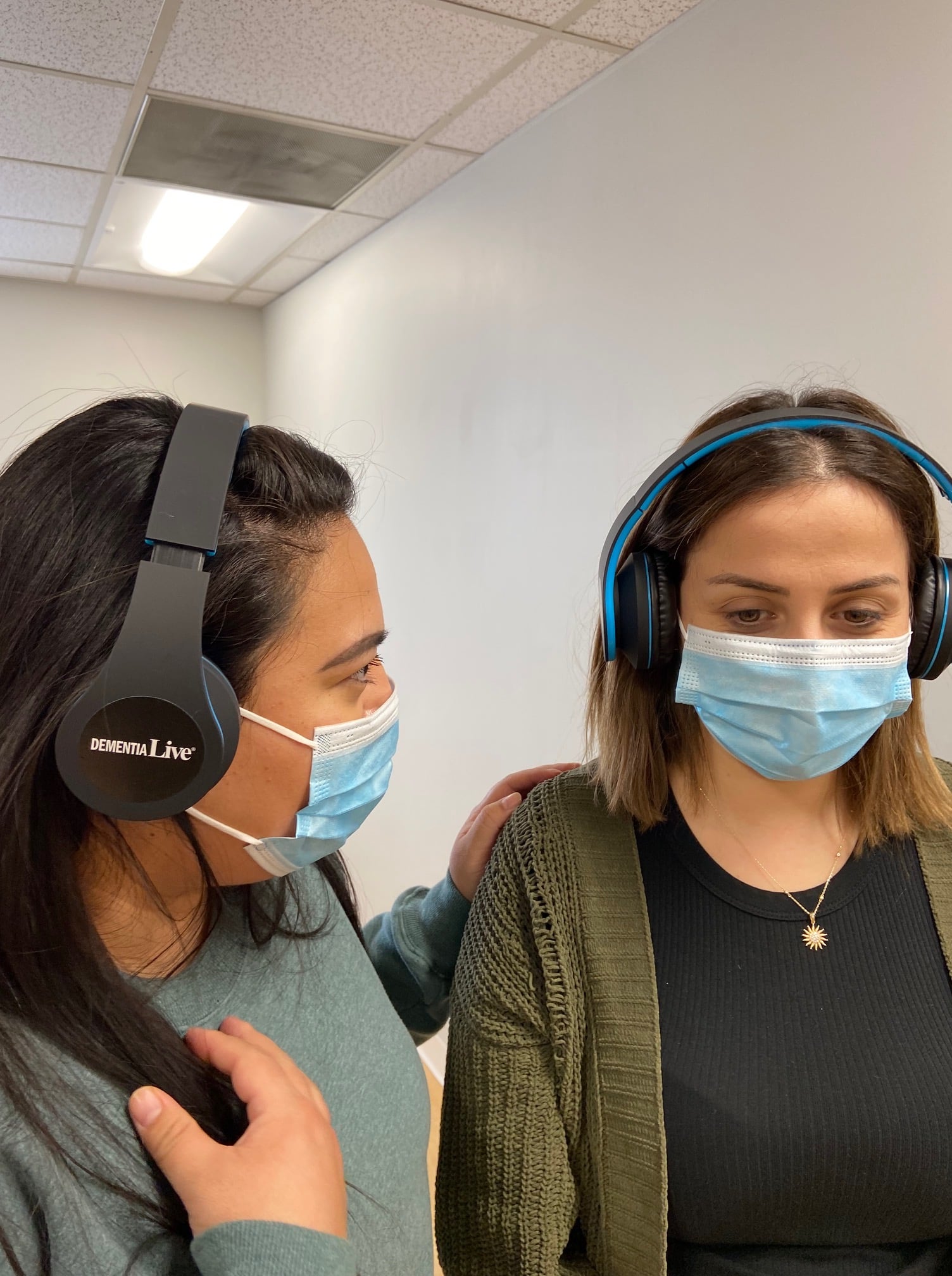
We are talking a lot about empathy lately. I see many posts, blogs and articles on the subject because so many feel that it is severely lacking in this current time. Social psychologists are having a field day dissecting what has gone so wrong, and why.